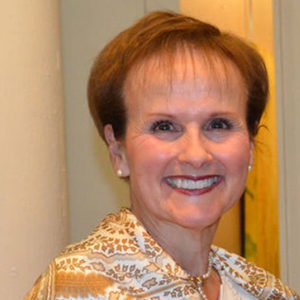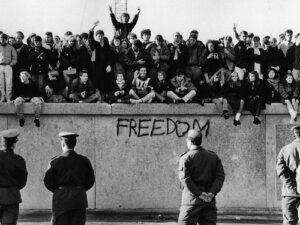When you ask Barbara Morgan, former South Carolina 2nd Circuit Solicitor, about her father, she smiles and says, “He was the ‘real deal’ — a soldier, a public servant, a man committed to family, country, and community.”
Robert L. “Bob” Morgan grew up in northern California and received an appointment to West Point. After his graduation from the USMA he served in the Korean conflict and was then stationed in Japan, assigned to the Army Corps of Engineers to help rebuild that country’s infrastructure. Later, with his wife and 3 young children in tow, he attended the Massachusetts Institute of Technology, where he received advanced civil and nuclear engineering degrees. Bob was then assigned to the Idaho National Engineering Laboratory to help develop the Army’s mobile nuclear reactor. During his 13 years in the United States Army, Bob was awarded numerous service metals, including the Bronze Star for his service in Korea as well as the Soldiers’ Medal of Heroism for his actions taken after the explosion and deaths at the SL-1 reactor in Idaho Falls. After additional overseas duty in southeast Asia, Bob was hired by the Atomic Energy Commission (AEC) at the Savannah River Site (SRS) in 1965. Barbara was only 10 years old when she relocated to Aiken with her mother, Arden, and her two siblings. They knew their father worked with the Reactor Development Program but they were clearly told they didn’t have sufficient security clearance for any additional information. Barbara said, “Our dinner table discussions were always centered on family activities, not his career.” Barbara has fond memories of her early days in Aiken. She and her siblings rode their bicycles from their home in Aiken Estates to Saint Mary’s School. They played often in Hitchcock Woods. Along with her sister, she learned to ride English, and they had their first opportunity to explore Hitchcock Woods on horseback. It was only a year before Bob’s AEC career took him to back to his home state of California, where he worked at a field operations office. During this assignment his family was able to put down roots for the first time, spending 7 formative years in southern California. In 1973 Bob returned to SRS as the site’s Deputy Manager. In 1977, the AEC was abolished and replaced with the Department of Energy (DOE). Between 1977 and 1978, Bob was detailed to Washington DC to serve as acting director of Field Operations Management for the Assistant Secretary for Energy Technology, and the following year, he was named acting director of the Office of Nuclear Waste Management. During this time the Morgan family maintained the home in Aiken. While Barbara enjoyed living in California, she was more than willing to return to Aiken. She explained, “Although I was set to go to college in California, I wanted to go where I could keep my horse and ride everyday. My sister and I were Pony Club ‘raised’ and were responsible for all the daily feeding and work involved in caring for our own horses.” Barbara entered USC Aiken, and her father assumed increasing responsibilities. She would go on to graduate from the College of Charleston and receive her law degree from USC Columbia. Bob Morgan was adamant that none of his children pursue any employment at SRS while he was in a high level management position. He taught his children that personal integrity is everything. He held himself and them to the highest standard. Things not only had to be right, they had to look right, and he assured them that to do so would not be easy. In 1980 Bob Morgan was named DOE’s Site Manager. It was a tumultuous time in DOE’s history as his assignment came on the heels of the Three Mile Island accident in Harrisburg, Pennsylvania. During this time, Bob successfully led the L Reactor restart, the upgrading of the main process facilities, and the expansion of the administration complex. Bob’s greatest professional challenge may have been fulfilling the direction of the Nuclear Waste Policy Act of 1982. From 1983 to 1984, it was his charter to lead a team to identify five scientifically suitable sites for a nuclear waste repository. Successfully navigating the waters for this task was not easy considering that fifteen (15!) congressional committees were charged with overseeing his performance. The political pressure was intense as a host of anti-nuclear, environmental, and industry concerns, as well as state and local governments, were watching every move. While no state wanted the repository, Bob Morgan did not let the politics affect the technical process to reach the right decision. Bob’s strength of character is no surprise to his daughter. She said, “To understand Bob Morgan, look at his West Point background. He was very humble. He was committed to the values of duty, honor, and country. He knew that the political process can be in direct conflict with scientific research and technical compliance. He wasn’t going to compromise.” Bob Morgan returned to SRS in 1984 after completing his history-making task. While this work was important, his most significant contribution to our nation may have been providing a DOE complex-wide leadership role in increasing nuclear material production. This action was considered to have accelerated the end of the Cold War. Bob retired in 1988, and the very next year Barbara was appointed Solicitor of South Carolina’s 2nd Circuit. This is a position she held for almost 20 years, but it wasn’t her father’s first choice for her. Barbara said, “He knew how gruesome politics could be. He had to testify before Congress so many times. He didn’t know why I would want to put myself through it.” Nonetheless, she is sure he was very proud of her career choice. Barbara remembers her father as a man who had a true zest for life. He loved speed sports cars and motorcycles, played a wicked game of backgammon, and enjoyed dancing anything from the twist to the waltz. He was devoted to his family and he gave back to the Aiken community. He was a charter member of the Sunrise Rotary Club and a member of the Aiken Business Men’s Club. Bob Morgan passed away in 2014 but his legacy of patriotism, integrity, and humility live on. He was, in fact, the “real deal.”
Swearing in after 1992 election. Sworn in by Senator Strom Thurmond after her first election (had already served 3 years of unexpired term) along newly elected Sheriff Sellers and Coroner Sue Townsend.
Swearing in after 1992 election. Sworn in by Senator Strom Thurmond after her first election (had already served 3 years of unexpired term) along newly elected Sheriff Sellers and Coroner Sue Townsend.
























